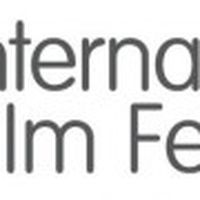Euro-Ways To Asian Cinematography
Fani Jagerova spends most of her time on the roads tracking everything that has an Asian film connection. Press conferences, film competitions, awards ceremonies, book fairs, etc. She reports and works as a consultant for several film festivals and for an international sponsor. This year 2005 Fani worked twice as much as the year before. The Tsunami disaster alone cannot explain the number of events on Asian movies. More countries, especially in the Eastern Europe recently opened to Asian film productions through the launch of new film events.
Soon after the closing of the first edition of the Czech FILMASIA in Prague at the beginning of December 2005, Fani was on the road heading to Slovakia - a country that will have its first presentation of Indonesian film productions in June 2006. Fani eventually met with a team of festival organizers to advice them on research techniques to find Asian films. Around the table, artistic directors with large network of contacts, filmmakers, and other film professionals that will be sent for scouting in these regions. Webmasters have been also invited.
Fani is not an expert in films and web-promotion. To learn more on the limits of the internet as a mean of communication with filmmakers from Asia, she went to Vesoul for a chat with Martine Therouanne, director of the Asian Film Festival. The aim of the meeting was to know more about the reason of having the Vesoul film festival blocked in Iran, and the possible incidence on the making of the film festival programme. Fani staid until the end of the competition programme in the Haute-Saône region. She was there also for the distribution of the main "Cyclo D'Or award".
For some time, Asian films were not more than exotic sidebars at major international film festivals. It took a while before Asian cinema experts joined their experiences for the organisation of festivals such as Vesoul, the Barcelona Asian Film Festival (BAFF) or, the Far East Film Festival of Udine - Italy (FEFF) are today.
To develop the understanding of its audience for the Asian cinematography the Italian film festival does not hesitate to provide the visitors of its website with rich information on the current situation of the cinema in the Philippines, in Singapore as well as for all the country represented at the last edition.
The Festival organizers also propose a number of essays and interviews, which can be found in the PROGRAM Section of the festival website: http://www.fareastfilm.com
The major transformation of a festival such as Vesoul came with the awards distribution, which soon after its launch saw the festival offices flooded with videotapes and DVDs for the submission of new entries. Fani recalls us the importance of having cash awards in a festival for the development of the film programme quality itself and, for the development of author cinematography in Asia. The Prix Emile Guimet is a good example. It was launched at the 10th edition of the Vesoul festival. It was named after the founder of the national Museum of Asian arts (the Guimet Museum of Asiatic Art in Paris) and, came to reward a new dimension - a remarkable cultural lighting on Asia added to the other film quality.
According to THANH NIEN -The website of the Communist Party in Vietnam Quang Minh, the Vietnamese filmmaker of "LONG TIME PAST" (Thoi Xa Vang) – winner of the 2005 Emile Guimet Award was invited to join the Sponsorship Committee of Audiovisual Projects. The committee is said to sponsor up to a maximum of 100,000 Euros for a film project. The Vietnamese editor would like to share his optimistic observation for the local film industry "Vietnam’s filmmakers will likely have more chances of being funded by the International Organization of the Francophone (IOF) after an overseas Vietnamese became a member of IOF’s sponsoring committee of film works."
If Fani cannot share such optimism, she agrees however that International Networks can play a major role in the support to Asian films presented at European film festivals. A prize such as the NETPAC - the Network for the Promotion of Asian Cinema, whose genesis lies in the first conference "Promoting Asian Cinema" in collaboration with UNESCO (New Delhi 1990), aimed to promote Asian films within Asia and around the world. The award is now distributed at the major film festivals. It will be given at the next Estonian Black Night Film Festival in the "EURASIA“ competition programme, and comes with cash 10.000 euros. Fani has booked her fly to the Baltic State already "Quite a nice call from Estonia to Asian filmmakers. Isn't it?"
Read the Black Night Regulation
By Gyora GAL GLUPCYZNSKI
Similar content
By Kerrine Goh
28 Feb 2006
posted on
27 Mar 2011
By Kerrine Goh
03 Jun 2005
from - to
15 Nov 2017 - 22 Nov 2017
deadline
31 Dec 2013
By Kerrine Goh
25 Jun 2007


